W1: 1st IEEE International Workshop on Artificial Intelligence Enabled Autonomous Networks and Systems (IWAANETS 2022)
Co-chair: Jyri Hämäläinen, Aalto University, Finland
Co-chair: Raquel Barco, University of Malaga, Spain
Co-chair: Furqan Ahmed, Elisa Corporation, Finland
Co-chair: Muhammad Zeeshan Asghar, Aalto University, Finland
Keynote Speaker: Mehdi Bennis, University of Oulu, Finland
Keynote Speaker: Mérouane Debbah, Centralesupelec, France & Technology Innovation Institute,
UAE
Abstract: In recent years, mobile network operators have witnessed a phenomenal increase
in data consumption fueled by growing number of connected mobile devices, widespread popularity of Internet based mobile apps, and pervasive online services in different areas, ranging from business, entertainment, health, finance, to home and industrial automation. In order to meet the traffic demands while keeping the costs low, network operators need intelligent automation that not only optimizes the use of resources but also ensures promised quality of services and seamless connectivity to users at all times. Emerging challenges include increased network complexity, high degree of network density and heterogeneity, varying user demands in terms of data rates, reliability, and latency, and a wide range of dynamically changing mobility scenarios. Moreover, this trend is likely to continue in the future, especially for 6G and beyond, leading to further challenges not only in planning and roll-out, but also in configuring, operating, and optimizing mobile networks in a dynamic manner. In order to meet such challenges, intelligent network control coupled with fine-grained automation capabilities are needed. Due to advances in the field of artificial intelligence (AI), especially in machine learning (ML), in conjunction with the availability of cloud technologies and big-data processing tools, the concept of AI enabled autonomous networks is emerging as a viable approach for mobile network optimization. In particular, the massive amounts of data available to mobile operators offers an invaluable opportunity to develop intelligent data driven automation use-cases beyond standard self-organizing network paradigm. Application of AI/ML techniques on data aggregated from different sources available to network operators can lead to important insights into network performance and customer experience, not only useful for automated network optimization and energy efficient operation, but also for pro-active detection of anomalies in key performance indicators and network alarms, thereby complementing classic network operation and maintenance solutions with AI/ML empowered intelligent networking optimization and monitoring tools.
This workshop focuses on both theoretical aspects of AI/ML in wireless networks and emerging practical applications in autonomous and self-organizing mobile networks. Data-driven optimization algorithms and machine learning based intelligent network automation for mobile networks are particularly in scope. The aim is to bring together academic researchers, industry practitioners, and research and development community in general, to discuss relevant challenges, recent advances in the field of AI/ML, and the capabilities of emerging solutions. We invite submission of original work and unpublished contributions on related topics, which include but are not limited to the following:
• Big-data enabled intelligent self-organizing networks
• Deep and reinforcement learning for communications systems
• Federated learning for network automation algorithms
• Graph machine learning for large scale wireless networks
• Machine learning for automated anomaly detection systems
• Automated root-cause analysis and self-healing algorithms
• Data driven approaches for energy efficient networks
• Intelligent algorithms for ultra-reliable and low latency communications
• Key performance indicators (KPI) forecasting and alarm prediction
• Advanced algorithms for traffic forecasting and user behaviour prediction
• Artificial intelligence enabled zero touch network and service management
• Algorithms for quantum computing enabled mobile network automation
• Intelligent energy saving and new paradigms for green communications
• Distributed machine learning approaches for wireless systems
• Data analytics for large-scale network performance analysis
• Data driven intelligent radio resource management algorithms
| Workshop 1: AI enabled Autonomous Networks | ||
| Keynote-1 | Distributed Edge Intelligence for and over wireless. By Professor Mehdi Bennis – VIRTUAL | 9:00 -9:30 |
| Paper-1 | Analyzing Convergence Aspects of Federated Learning: More Devices or More Network Layers? | 9:30 – 9:45 |
| Paper-2 | Data-Driven Precoder Codebook Design for SU-MIMO Systems | 9:45 – 10:00 |
| Paper-3 | Two methods for Jamming Identification in UAV Networks using New Synthetic Dataset | 10:00 – 10:15 |
| Paper-4 | Deep Learning Based MAC via Joint Channel Access and Rate Adaptation – VIRTUAL | 10:15 -10:30 |
| Break | ||
| Keynote-2 | Do we need 6G for building AI Native Networks? By Dr. Merouane Debbah – VIRTUAL | 11:00 -11:40 |
| Paper-5 | Knowledge-Embedded Deep Reinforcement Learning for Autonomous Network Decision-Making Algorithm | 11:40 -11:55 |
| Paper-6 | Novel Reinforcement Learning based Power Control and Subchannel Selection Mechanism for Grant-Free NOMA URLLC-Enabled Systems | 11:55 -12:10 |
| Paper-7 | Open-RAN and Future Intelligent Networks | 12:10 – 12:25 |
Keynote Speakers:
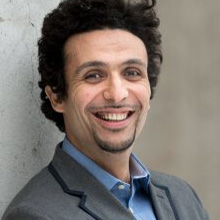 Mehdi Bennis
Mehdi Bennis
Bio: Dr Mehdi Bennis is a full (tenured) Professor at the Centre for Wireless Communications, University of Oulu, Finland, Academy of Finland Research Fellow and head of the intelligent connectivity and networks/systems group (ICON). His main research interests are in radio resource management, heterogeneous networks, game theory and distributed machine learning in 5G networks and beyond. He has published more than 200 research papers in international conferences, journals and book chapters. He has been the recipient of several prestigious awards including the 2015 Fred W. Ellersick Prize from the IEEE Communications Society, the 2016 Best Tutorial Prize from the IEEE Communications Society, the 2017 EURASIP Best paper Award for the Journal of Wireless Communications and Networks, the all-University of Oulu award for research, the 2019 IEEE ComSoc Radio Communications Committee Early Achievement Award and the 2020 Clarviate Highly Cited Researcher by the Web of Science. Dr Bennis is an editor of IEEE TCOM and Specialty Chief Editor for Data Science for Communications in the Frontiers in Communications and Networks journal. Dr Bennis is an IEEE Fellow.
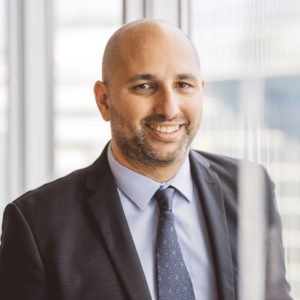 Mérouane Debbah
Mérouane Debbah
Bio: Mérouane Debbah is Chief Researcher at the Technology Innovation Institute in Abu Dhabi. He is an Adjunct Professor with the Department of Machine Learning at the Mohamed Bin Zayed University of Artificial Intelligence. He received the M.Sc. and Ph.D. degrees from the Ecole Normale Supérieure Paris-Saclay, France. He was with Motorola Labs, Saclay, France, from 1999 to 2002, and also with the Vienna Research Center for Telecommunications, Vienna, Austria, until 2003. From 2003 to 2007, he was an Assistant Professor with the Mobile Communications Department, Institut Eurecom, Sophia Antipolis, France. In 2007, he was appointed Full Professor at CentraleSupelec, Gif-sur-Yvette, France. From 2007 to 2014, he was the Director of the Alcatel-Lucent Chair on Flexible Radio. From 2014 to 2021, he was Vice-President of the Huawei France Research Center. He was jointly the director of the Mathematical and Algorithmic Sciences Lab as well as the director of the Lagrange Mathematical and Computing Research Center. Since 2021, he is leading the AI & Telecom Systems center at the Technology Innovation Institute. He has managed 8 EU projects and more than 24 national and international projects. His research interests lie in fundamental mathematics, algorithms, statistics, information, and communication sciences research. He is an IEEE Fellow, a WWRF Fellow, a Eurasip Fellow, an AAIA Fellow, an Institut Louis Bachelier Fellow and a Membre émérite SEE. He was a recipient of the ERC Grant MORE (Advanced Mathematical Tools for Complex Network Engineering) from 2012 to 2017. He was a recipient of the Mario Boella Award in 2005, the IEEE Glavieux Prize Award in 2011, the Qualcomm Innovation Prize Award in 2012, the 2019 IEEE Radio Communications Committee Technical Recognition Award and the 2020 SEE Blondel Medal. He received more than 20 best paper awards, among which the 2007 IEEE GLOBECOM Best Paper Award, the Wi-Opt 2009 Best Paper Award, the 2010 Newcom++ Best Paper Award, the WUN CogCom Best Paper 2012 and 2013 Award, the 2014 WCNC Best Paper Award, the 2015 ICC Best Paper Award, the 2015 IEEE Communications Society Leonard G. Abraham Prize, the 2015 IEEE Communications Society Fred W. Ellersick Prize, the 2016 IEEE Communications Society Best Tutorial Paper Award, the 2016 European Wireless Best Paper Award, the 2017 Eurasip Best Paper Award, the 2018 IEEE Marconi Prize Paper Award, the 2019 IEEE Communications Society Young Author Best Paper Award, the 2021 Eurasip Best Paper Award, the 2021 IEEE Marconi Prize Paper Award as well as the Valuetools 2007, Valuetools 2008, CrownCom 2009, Valuetools 2012, SAM 2014, and 2017 IEEE Sweden VT-COM-IT Joint Chapter best student paper awards. He is an Associate Editor-in-Chief of the journal Random Matrix: Theory and Applications. He was an Associate Area Editor and Senior Area Editor of the IEEE TRANSACTIONS ON SIGNAL PROCESSING from 2011 to 2013 and from 2013 to 2014, respectively. From 2021 to 2022, he serves as an IEEE Signal Processing Society Distinguished Industry Speaker
Co-chair Bios:
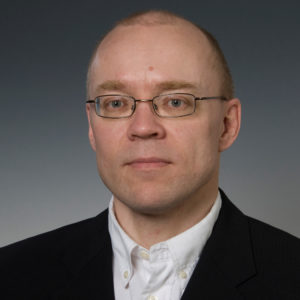 Jyri Hämäläinen
Jyri Hämäläinen
Bio: Jyri Hämäläinen is Full Professor of Aalto University, Finland. He received his M.Sc. and Ph.D. degrees from University of Oulu, in 1992 and 1998, respectively. From 1999 until the end of 2007 he was a Senior Specialist and Program Manager in Nokia where he worked with various aspects of mobile communication systems and 3GPP standardization. Hämäläinen was nominated to professor of Aalto University in 2008 and he was tenured in 2013. His research interests cover mobile and wireless systems, special focus being in irregular, dynamic and heterogeneous networks including e.g. 5G/6G, small cells, multi-antenna transmission and reception techniques, scheduling, relays and many other topics. Hämäläinen is author or co-author of over 230 scientific publications and 37 US patents or patent applications. He is a Senior Member of IEEE and an Expert Member of the Highest Administrative Court of Finland, nominated by the President of Finland. From 2015 Hämäläinen has been serving as a Dean in the Aalto University School of Electrical Engineering.
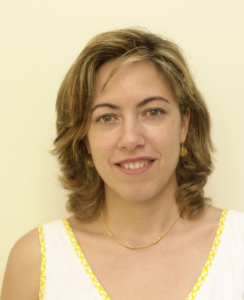 Raquel Barco
Raquel Barco
Bio: Raquel Barco is Full Professor in Telecommunication Engineering at the University of Malaga. Before joining the university, she worked at Telefonica (Madrid, Spain) and at the European Space Agency (ESA) (Darmstadt, Germany). As researcher she is specialized in mobile communication networks, artificial intelligence and smart-cities, having led projects funded by several million euros, published more than 100 papers in high impact journals and conferences, authored 5 patents and received several research awards. In addition, currently she is Vice-President for Smart-Campus at the University of Malaga.
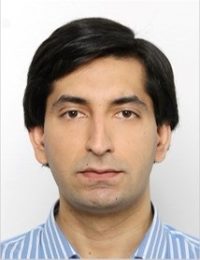
Furqan Ahmed
Bio: Furqan Ahmed is with mobile network automation product team at Elisa Corporation, Finland, focusing on the development and productization of advanced network optimization solutions for commercial mobile networks. He is author or a co-author of numerous peer reviewed publications in this and related areas including pioneering work on the application of quantum computing for mobile network automation. He received his Ph.D. degree in electrical engineering from Aalto University, Espoo, Finland, in 2016. During 2016-2017, he was a Postdoctoral Researcher with the Department of Communication Systems, KTH Royal Institute of Technology, Stockholm, Sweden. His current research interests include artificial intelligence and machine learning for network automation, anomaly detection, intelligent green communications and networks, network optimization algorithms, complex networks, graph theory, and quantum computing.
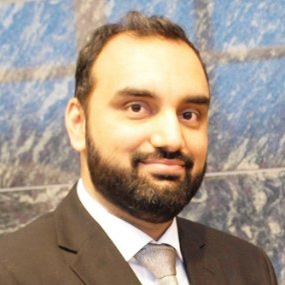 Muhammad Zeeshan Asghar
Muhammad Zeeshan Asghar
Bio: Dr. Muhammad Zeeshan Asghar is post-doctoral researcher at the department of communication and networking, Aalto University Finland. He was a principal investigator of BusinessFinland funded project of on 5G Cognitive Self-organizing Networks (CSON) at the University of Jyväskylä during the years 2017−2019. He raised 500K euro for the commercialization of his research on 5G. The project outcome is a startup company that provides R&D support to telecom vendor and mobile network operators on AI/ML powered network automation for 5G/6G networks. Prior to this, Muhammad worked as a Research Engineer for Nokia-Siemens Networks Solutions, Finland during 2008-2014. During this work he wrote one patent that was granted in year 2016. His research interests in 5G/6G Radio Access Networks, OpenRAN Architectures, AI/ML based network automation, private 5G/6G networks and industrial IoT. Muhammad completed his Ph.D. in Wireless Communication at the University of Jyväskylä, Finland in 2016. He has received a several awards, including Future City Challenge (Jyväskylä) Winner 2018 and conference paper award at ICEIC Barcelona 2019.
Technical Program Committee:
Adnan Shahid, Ghent University, Belgium
Alain Mourad, Interdigital, UK
Alexis Dowhuszko, Aalto University, Finland
Amin Shahraki, Fraunhofer IIS, Germany
Athul Prasad, Nokia, USA
Federica Rinaldi, University of Reggio Calabria, Italy
Jessica Moysen, Huawei Technologies, Sweden
Jos´e Mairton B. da Silva Jr., KTH Royal Institute of Technology, Sweden
Kapal Dev, Munster Technological University, Ireland
Lina Mohjazi, University of Glasgow, UK
Mario Garcia-Lozano, Universitat Polit`ecnica de Catalunya, Spain
Metin Ozturk, Ankara Yıldırım Beyazıt University, Turkey
Mingzhe Chen, Princeton University, USA
Muhammad Ikram Ashraf, Nokia Bell Labs, Finland
Omer Bulakci, Nokia, Germany
Osman Yilmaz, Nokia, Finland
Petteri Lunden, Elisa Corporation, Finland
Phuong Luong, ´Ecole de technologie sup´erieure, Canada
Piergiuseppe Di Marco, University of L’Aquila, Italy
Sara Modarres Razavi, Ericsson, Sweden
Suzan Bayhan, University of Twente, Netherlands
Valeria Loscri, Inria Lille-Nord Europe, France
Deadlines:
Workshop paper submissions due EXTENDED: 23 March 2022
Acceptance notification: 17 April 2022
Final paper submission due: 1 May 2022
To submit a paper to this workshop, please visit: https://vtc2022s-rr-wks.trackchair.com/track/2036
